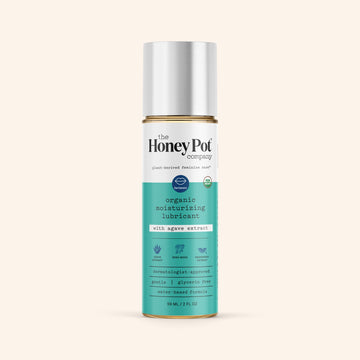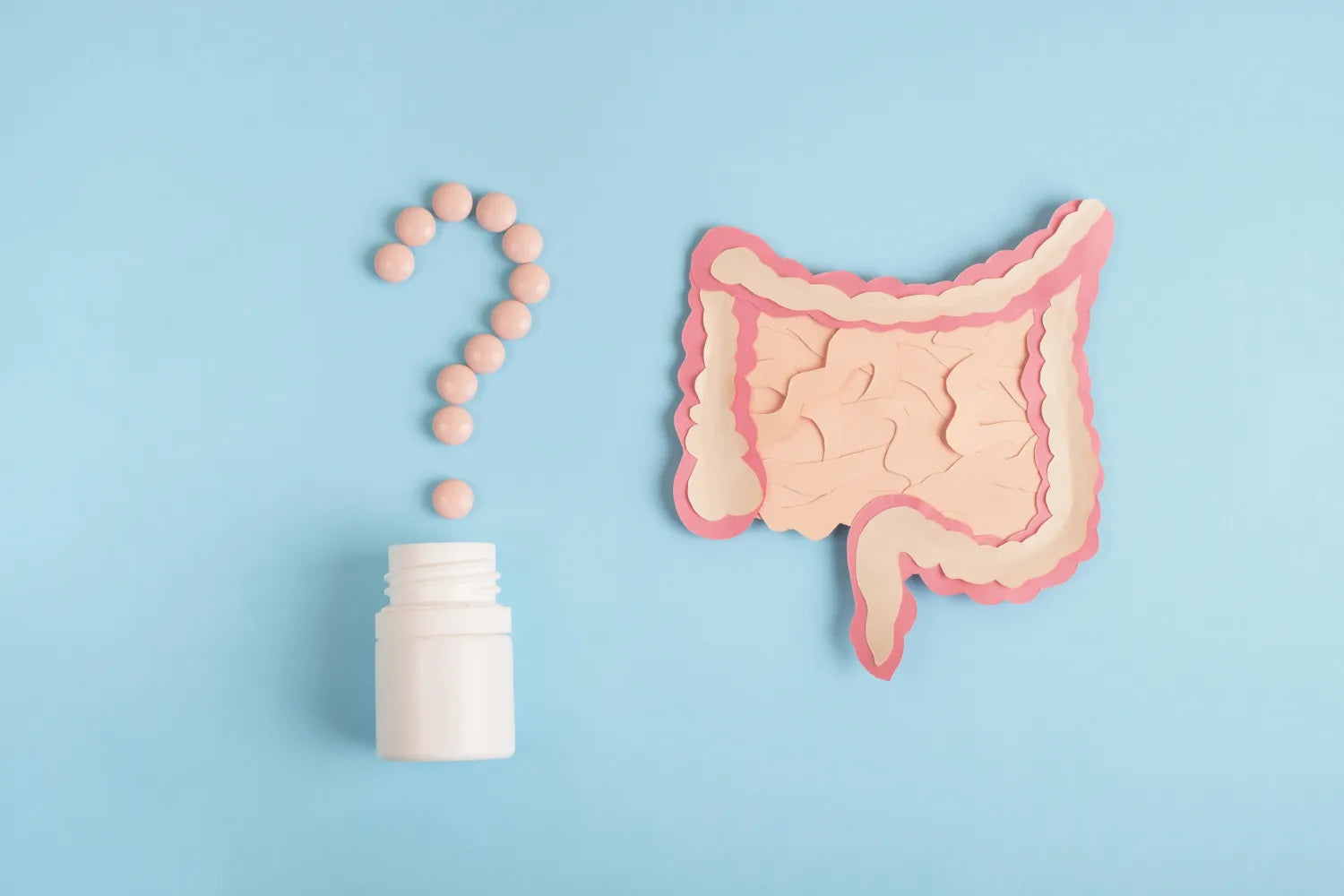You’ve probably heard of probiotics because they only show up in every health convo. We’re here to give you the tea on everything prebiotics, microorganisms, and healthy bacteria.
Prebiotics are a great way to support a healthy digestive system. But there are all kinds of benefits to a thriving bacterial biome, spreading all the way down to your vagina.
What Are Prebiotics?
Probiotics are live microorganisms, like yeasts and good bacteria, that live in your gut, while prebiotics are foods that feed the bacterial enzymes. Prebiotic foods are often high in fiber, which probiotics find delicious. Fibrous foods like oats, beans and legumes, artichokes, whole grains, and bananas feed the good bacteria you want to thrive in your gut.
Also, fermented foods like kombucha, sauerkraut, yogurt, kefir, leeks, and kimchi all help you reach your microbiome goals. (Is this a thing? It should be. We’re making it ours.)
In order to maximize prebiotics for your best health, you need to first understand what results they can potentially bring.
What Are the Health Benefits of Prebiotics?
Prebiotics are bursting with benefits for your total wellness. As you now know, prebiotics feed beneficial bacteria to keep them happy, and when they’re happy you should experience smooth digestion and regular bowel movements.
On the contrary, when the bacteria in your digestive tract are upset, you can experience all kinds of misery. These may include bloating, constipation, skin issues, gas, cravings, or stomach aches and pains. No thanks, we’ll pass.
Along with aiding your digestive health, taking prebiotic fiber supports your immune system. And as mentioned, it also helps maintain your vaginal health.
How Do Prebiotics Connect To Your Vaginal Health?
Let’s talk vaginal microorganisms, shall we? There’s a link between your gut microbiome and honeypot health.
There are live bacteria in the biome of our vagina, just like in the gastrointestinal tract. Some probiotic strains are particularly beneficial for your vaginal microbiome, such as Lactobacillus acidophilus.
You want lots of healthy bifidobacteria (strains in the gastrointestinal system and vagina) because if you don’t, you’ll know something is off. Harsh cleansers are often the culprits of killing vaginal microbiota, so make sure you wash with a gentle cleanser. (Reminder: you only wash the external parts, AKA your vulva!)
How To Take Probiotics for the Best Results
Now onto the question of the hour: When should you take prebiotics? Well, since we’ve covered why you should be taking prebiotics (least of which is keeping healthy flora growing in your honeypot), let’s unpack the different times you could consume them.
Is there a better time than others? The answer is maybe, but the reasons depend on the person. We believe that every person with a vagina should incorporate prebiotics into their routine. The question of when to take prebiotics is more of a question of how you should take them.
Morning vs. Night
Does the time of day matter when it comes to fueling the healthy bacteria in your body? Kind of! There are different reasons why you might be better off eating prebiotic fiber in the morning or the night.
One factor to consider is that in the morning, prebiotics may have a smoother digestion route since your body is waking from an overnight fast. On the other hand, if you have a sensitive stomach (IBS besties, we see you!), taking prebiotics before bed allows you to sleep through any uncomfortable side effects.
So, choose based on your body. But most importantly, you should eat prebiotic foods and do it regularly. They say consistency is key for a reason; you’re unlikely to break strong habits.
With Food vs. on an Empty Stomach
Prebiotic supplements can be taken with food since they travel straight to the lower digestive tract. Conversely, you can also eat prebiotics on an empty stomach, but be aware that high-fiber foods can cause bloating as a result of the flow of food to your gut microbiota.
Ideally, take your prebiotics with water to wash them down. Plus, drinking water helps keep your bladder in top shape.
With Other Supplements vs. on Their Own
Should you avoid taking prebiotics with other supplements? When considering when to consume them, you don’t need to worry about taking other medications at the same time. Prebiotics and other supplements or vitamins shouldn’t affect each other.
In fact, eating prebiotics and probiotics together have extra benefits. “Synbiotics” is the word for the combination of prebiotics and probiotics.
Both work in unison to support healthy bacterial flora. This “microbiome therapy” is thought to be effective since prebiotics feed the good bacteria in the same way probiotic supplements replenish them.
So, if you want to support the trillions of microorganisms found in your body, focus on incorporating both prebiotics and probiotics.
Give Your Body the Good Stuff
To recap, prebiotics aren’t just fun for your gut. When you eat prebiotics, there’s a widespread positive effect on your reproductive tract and vaginal health.
A thriving microbiome supports a healthy vaginal pH, which helps with any unwanted experiences. If you’re here because you’re looking to support your vaginal wellness, our prebiotic wash and wipes help maintain a healthy microbiome.
Just remember, it’s all connected when it comes to your probiotic bacteria. If your body is a garden, a well-tended gut microbiome is like a fruitful harvest. The benefits grow all around for overall health, including a blooming vulva.
Sources:
Health Effects and Sources of Prebiotic Dietary Fiber | PMC
Signs Of An Unhealthy Gut, According To Experts | Forbes
Prebiotics: Definition, Types, Sources, Mechanisms, and Clinical Applications | PMC






